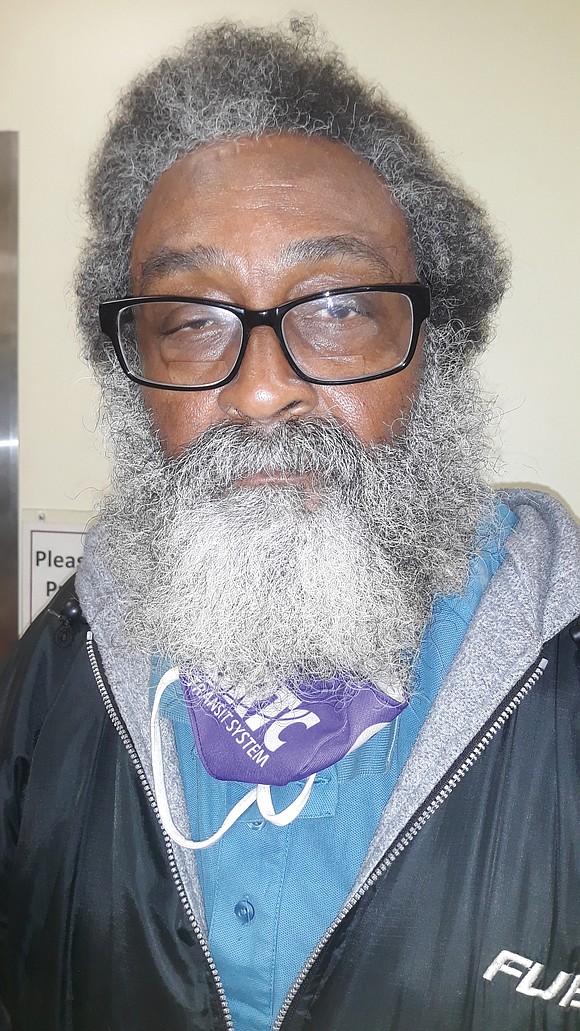Plans in the works to create several 24-hour homeless shelters
Jeremy M. Lazarus | 10/8/2020, 6 p.m.
Frizzell Stephens wishes he had a roof over his head.
At 69, Mr. Stephens, who walks with a cane and has other health problems, finds himself sleeping outdoors after losing his bed in a men’s shelter — the cause of which is a matter of dispute between him and shelter officials.
But one thing is certain: He is on the street with no place to stay.
That soon could change for him and others who are facing difficulty in getting space indoors as nights turn cold and winter approaches.
Although it is still uncertain how many people like Mr. Stephens would need such help, Fifth District City Councilwoman Stephanie A. Lynch said that city officials are rushing to create three to four 24-hour shelters around the city for homeless people during inclement weather.
She told the Free Press negotiations are underway with churches and others with potential space who could make it available, and with existing shelter providers who could operate the space. Under the plan, the city would pick up the tab using federal CARES Act, emergency shelter and Community Development Block grants.
The new initiative would provide counseling and connections to other programs, possibly include shuttle transportation to the shelter sites and be open for more hours daily than in the past.
Ms. Lynch, first made the disclosure at the Oct. 1 meeting of City Council’s Education and Health Committee, and said the goal is to have the new operation in place within a few weeks.
Ms. Lynch said the new initiative would improve ser- vice and be less costly than continuing the city partnership with homeless service providers to shelter people in hotels and motels using federal dollars.
And it could be timely given the concern that more individuals and families could face evictions early next year when it is still winter.
“But we are going to need a dedicated funding stream to support this effort,” Ms. Lynch said. “The federal funding is going to run out and we are going to need to come up with the resources to make it sustainable.”
The goal would be to replace the traditional cold weather shelter the city has long operated when temperatures fall to 40 degrees or below, but that previously only provided overnight shelter with no services, she said. “We can do better,” she said.
Officials with Mayor Levar M. Stoney’s administration, including Sharon Ebert, deputy chief administrative officer for economic and community development, who has been the key figure on shelter is- sues, have not responded to Free Press queries seeking confirmation.
Surprisingly, Mr. Stephens has money in the bank, but the bank won’t let him access it because he cannot prove his identity with acceptable documents. His birth certificate is insufficient. He lost his photo ID, and the upheaval from the pandemic has left him unable to get a replacement from the state Department of Motor Vehicles.
DMV now requires people to make online appointments, but Mr. Stephens’ cell phone is not working and he does not have access to a computer. Even if he had access, it can take two months or more to get an appointment because DMV is so overwhelmed with requests.
“I just have to do the best I can to survive,” Mr. Stephens said. “I can only hope things will get better.”







